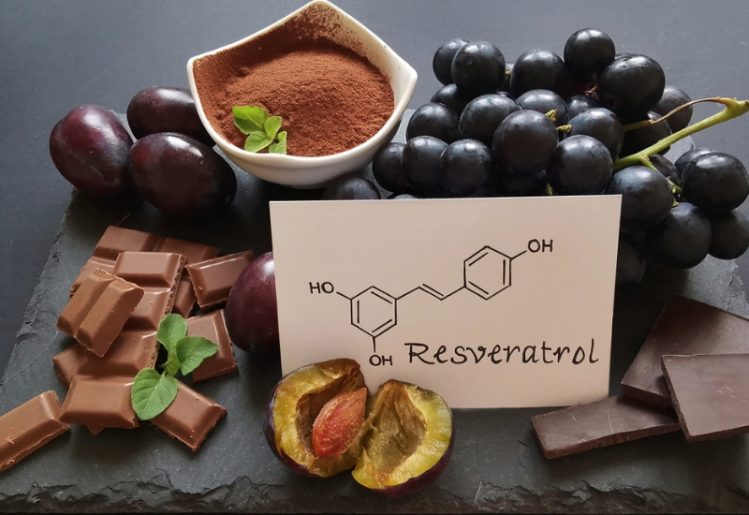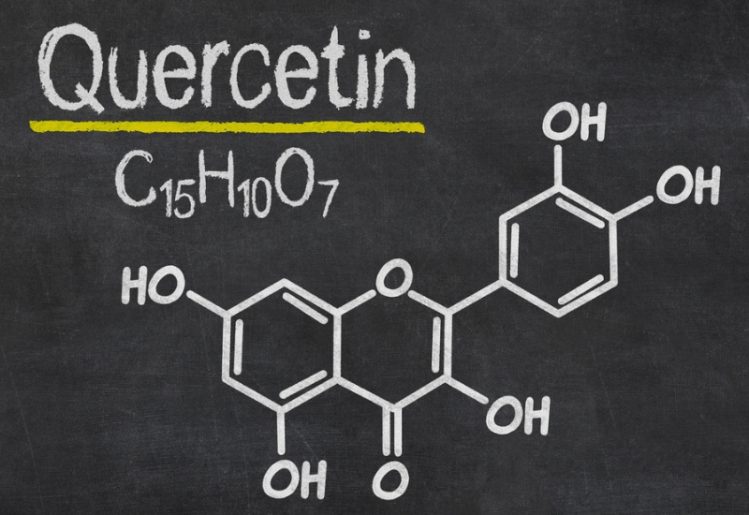Mounting evidence suggests that specific natural plant compounds like resveratrol may provide anti-aging benefits, leading the fight against the cellular damage caused by aging.
Resveratrol: A Natural Wonder
 If you haven’t heard of resveratrol, it’s likely only a matter of time. Resveratrol is a compound that’s naturally found in the skin of red grapes, which is why it’s also present in red wine. It can also be found in certain types of nuts, although to a slightly lesser degree.
If you haven’t heard of resveratrol, it’s likely only a matter of time. Resveratrol is a compound that’s naturally found in the skin of red grapes, which is why it’s also present in red wine. It can also be found in certain types of nuts, although to a slightly lesser degree.
One thing that makes this compound so interesting is the body of evidence that suggests it holds anti-aging properties. Recently, researchers have started to explore this possibility with several studies focusing on the youthful benefits that resveratrol may provide.
The Anti-Aging Benefits of Resveratrol
Research shows that resveratrol may impact the aging process by simulating certain processes that occur naturally when calorie intake is limited. In laboratory tests, scientists found that they were able to extend the lifespan of certain subjects, such as yeast, flies, worms and fish, by giving them daily doses of resveratrol.
Researchers have known that enzymes called sirtuins are key instigators of the changes that the body goes through as it ages. By regulating the activity of sirtuins, resveratrol may minimize the occurrence of adverse health conditions that result from the aging process. It’s still unknown exactly the effect resveratrol has on sirtuins, but it is known that the compound interacts with the enzymes and produces beneficial results.
In a more recent study, researchers from NHLBI, or the National Heart, Lung and Blood Institute, studied how resveratrol interacted with a specific sirtuin, SIRT1. The immune system uses SIRT1 to help fight disease by speeding up the energy hub inside each cell, known as the mitrochondria. In the study, researchers noticed that resveratrol increased the body’s production of the SIRT1 enzyme, which, in turn, helped to boost the activity of the mitrochondria.
In conducting their research, the team also identified the specific gene involved with the production of SIRT1. This was an important finding, because there are medications currently under review that may be able to produce the same effects as resveratrol, in terms of promoting the production of the SIRT1 enzyme.
David Sinclair, the senior author of the study, noted that there haven’t been any previous medications that affect SIRT1 production as effectively as resveratrol. That may change now that the gene involved in this process has been isolated.
Natural Plant Compounds Exhibit Potent Anti-Aging Benefits
While resveratrol is a key component in any anti-aging regimen, it’s not the only natural compound that positively affects the aging process. Catechins found in green tea leaf, grape seed extract and quercetin are other natural plant compounds with powerful anti-aging benefits. These compounds are all known for their ability to support healthy aging. Here is a brief summary of the anti-aging benefits they may have on the body.
Green Tea Leaf Extract
Green tea leaf extract may be beneficial for a number of reasons, acting as a powerhouse of vitamins and nutrients. One specific compound in green tea leaves is the catechin EGCG, which is an antioxidant that helps protect cells from the damage caused by the aging process. In particular, EGCG helps prevent disease-causing free radicals from forming in the body. By inhibiting the production of free radicals, the catechins in green tea leaf extract help protect against certain age-related conditions, such as unhealthy cell growth and heart disease, which can adversely affect our overall health.
Grape Seed Extract
Anyone who has eaten seeded grapes knows that the seeds are bitter to the taste, but they’re also beneficial to our health when pulverized and used as an extract. The extract we obtain from grape seeds contains a broad range of beneficial antioxidants and serves as an excellent source of proanthocyanidins.
While these compounds are helpful in protecting against disease, they also inhibit the negative impact of the aging process by reducing the amount of oxidative stress we experience. Left unaffected, oxidative stress can cause inflammation and tissue damage over an extended period of time.
Grape seed extract can also promote better bone health by helping the body produce more collagen. This helps maximize the bone mineral content, density and strength that you may be getting from a high-calcium diet.
Quercetin
 While pomegranate is the most common source of quercetin, it can also be found in a wide variety of plant-based foods. While quercetin can help reduce stress and boost your energy levels, its greatest benefits may be in helping you keep the aging process from affecting your health. It does this by fighting the free radicals that play a part in increasing the risk of age-related medical concerns.
While pomegranate is the most common source of quercetin, it can also be found in a wide variety of plant-based foods. While quercetin can help reduce stress and boost your energy levels, its greatest benefits may be in helping you keep the aging process from affecting your health. It does this by fighting the free radicals that play a part in increasing the risk of age-related medical concerns.
Since the oxidation that occurs as you age damages healthy cells, the antioxidant powers of quercetin can help combat this process. Some research on quercetin also shows that it helps the skin stay healthy by nourishing skin cells and preventing the outer layers of skin from drying out and wrinkling prematurely.
Research into the aging process continues to move forward. While some research focuses on finding ways to help us maintain a youthful appearance, other research is concerned with the health impact that aging has on everyone.
Fortunately, compounds like resveratrol and the other substances found in Resverchron can help support healthy aging naturally. Combined with a healthy diet and plenty of exercise, a high-quality daily anti-aging regimen can help you feel and look younger for a longer period of time.


